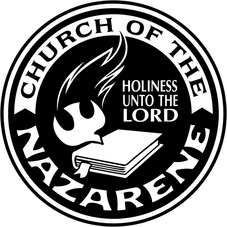
In October 1895, Phineas F. Bresee and Joseph Widney organized a Church of the Nazarene in Los Angeles. The church was formed around the doctrine of entire sanctification and the belief that sanctified Christians should follow Christ’s example and preach the gospel to the poor.
Bresee took issue with the church placing missions in poor areas, but not giving the poor their own church. He formed the church with the goal of ministering to the poor. It was said of him that he often took money with him when he went out on his pastoral rounds, but that he never returned with any, having given it away to anyone he met who was in need.
On Sundays (and the members would come to the church for the entire day, having services in the morning, eating dinner together, fellowshipping in the afternoon and then having an evening service), he would stand in the foyer greeting people before the service. If he saw people arrive who looked embarrassed about the way they were dressed, he would rush to greet them enthusiastically, put his arm around them, and escort them to the best seat in the sanctuary.
Even in 1895, the church allowed for the consecration of women and ordained both women and men as ministers. Before the Holiness Church of Christ in Tennessee merged with the Nazarene Church in 1908, they had ordained three women as ministers. Our founder was fond of saying, “Some of our best men are women.” Women played major roles in the holiness movement and when we start naming the names of our church parents, the lists are filled with women who were ministers, deaconesses, evangelists, and missionaries.
The founding members of our church strongly believed that you shouldn’t adorn either churches or your body—not because it was sinful, but because it was a poor use of resources. That money, they felt, should be going into ministries for the poor.
That church later merged with two other regional denominations, each having a Wesleyan context. The Association of Pentecostal Churches of America, the Church of the Nazarene, and the Holiness Church of Christ were brought together and merged officially on October 8, 1908 in Pilot Point, Texas. The merged organization was called The Pentecostal Church of the Nazarene.
In 1919, we changed our name to drop the “Pentecostal” because of the new associations that had become attached to the word Pentecostal. We are part of the Pentecostal movement; however, we do not encourage (nor forbid) speaking in tongues. It is a gift of the Spirit, but not one on which we place a lot of emphasis nor one we believe is essential.
We trace our roots through various movements which we recognize as paving the way for our existence. Our antecedents include the Holiness Church of Christ of 1894, the Association of Pentecostal Churches of America (1887), the holiness movement of the 19th Century, and the Wesleyan movement of the 18th Century, including the Anglican Church.
We claim heritage from the other Christian churches (including the Catholic Church) throughout the ages. The Church of the Nazarene calls itself a branch of the “one, holy, universal, and apostolic” church. We seek to be faithful to that universal history and—like nearly every other Christian religion—claim the history of the people of God as presented in the Old and New Testament as our history and heritage.
We believe that all people of God through the ages who have been redeemed through Jesus Christ are our brothers and sisters—no matter what church they do or do not attend. We acknowledge and accept as expressions of our faith the ecumenical creeds of the first five Christian centuries.
We believe that our branch of the church has a special calling and that is why we exist separately. Our calling is to proclaim the doctrine of sanctification and to live a Christ-like life of service to others. We have 16 Biblical Articles of Faith.
As Nazarenes, we believe that God calls Christians to a life of holiness. God cleanses our heart from original sin (the act of justification, achieved only through God’s grace and accepted by us only through faith) and fills us with love for God and others. When we have been filled with the Holy Spirit, we then devote our lives to serving God by serving others.
Compassionate ministries are extremely important to Nazarenes. It is commanded that we love others and we display that love through service. In that love and service, we believe, all else is fulfilled. Our concept of service and God is based on the belief that we are to love God with all our hearts and to love our neighbors as we love ourselves.
This post was adapted from an epinions website entry. For the original post, go to: http://www.epinions.com/content_2721620100?sb=1
BE HOLY.
BE A MAN.
 RSS Feed
RSS Feed